We aim to reduce the complications that occur due to high blood sugar in people who suffer from type 2 diabetes , as their bodies convert all of the sugar and starchy carbohydrates that they eat into large amounts of sugar, and this can be done by following a low-carb diet. Control blood sugar levels, and these are the most important tips that help in this:
- Sugar
You should completely avoid eating refined sugar.
- Cakes and biscuits
You should completely avoid eating cakes and biscuits, as they are a mixture of sugar and starches and do not carry any nutritional value, but rather make you feel more hungry.
- Starches
Reduce your intake of starchy carbohydrates, as they are digested into large amounts of sugar. Therefore, you should stay away from “white things” such as bread, rice, pasta, potatoes, biscuits, and cereals.
- Vegetables
All green vegetables and salads are good, so eat as much of them as possible. Turn white things into green so you can have a big, good meal. For example, try replacing pasta or rice with vegetables like broccoli, zucchini, or green beans. You can add mayonnaise, sauces, or Spices are also added to it for good taste, and mushrooms, tomatoes and onions can also be added.
- the fruit
Some tropical fruits, such as bananas, oranges, grapes, mangos, or pineapples, contain a lot of sugar and can lead to cravings for carbohydrates, so it is best to limit them, while berries, strawberries, apples, and pears can also be eaten.
- Healthy proteins
Try to base your meals on chicken or red meat, and avoid eating processed meats such as sausages and salami. Eggs are a healthy source of protein (a maximum of three eggs a day), and fish, especially oily fish such as salmon, mackerel and tuna. Full-fat yogurt is also considered a good breakfast. With berries.
- Healthy fats
Fats should be consumed from healthy sources, as they are necessary for the absorption of fat-soluble vitamins such as: Vitamins A, D, E, and K.
The most important healthy sources of fats are olive oil and cow’s butter, and coconut oil is a healthy choice for preparing French fries. You should avoid ghee, corn oil, and vegetable oil, and stay away from “low-fat” foods, as sugar or sweeteners are often added to them to make them palatable. You can eat full-fat mayonnaise and pesto.
- Cheese
Eat cheese in moderation, as it is a high-calorie mixture of fat and protein.
- snacks
Snacks should be avoided but unsalted nuts such as almonds or walnuts are fine to stave off hunger. It is also permissible to eat strong dark chocolate from time to time in small quantities.
Eating plenty of green vegetables with protein and healthy fats will keep you feeling full for a long time.
- Sweeteners
Studies have shown that sweeteners stimulate the mind to feel hungry, which makes losing weight more difficult, so it is preferable to drink tea, coffee, or herbal tea without adding sweeteners.
A low-carb diet contains less than 130 grams of carbohydrates per day. The extent of the decline depends on many factors. Discuss this with your doctor or nutritionist.
Frequently asked questions about cutting carbs
- What can I eat for breakfast?
Try plain, full-fat yogurt with nuts and berries, eggs, mushrooms and tomatoes, or an omelet with cheese.
- I suffer from headaches and cramps, is this normal?
For some people, the first few days of “cutting carbs” are difficult. It takes a while for the system to switch to burning fat. It is a short period and don’t forget to make sure you drink enough water.
- Is feeling dizzy when standing up too quickly normal?
Oddly enough, many people find that they need extra salt when following a low-carb diet. Interestingly, this is because insulin makes you retain salt so cutting out sugar may get rid of the salt you’ve been holding on to for some time, and in turn, losing salt can improve your blood pressure.
Some doctors find that their patients are able to reduce their blood pressure medications. For the same reason some people find muscle spasms and weakness to be a problem. Again, more salt is the cure, and sometimes magnesium supplements help too.
- I am taking my prescribed medication, is this important?
Yes, this may be important. The most important medications are any medication you take to treat diabetes. If you lower your blood sugar and lower your carbs as well, you may have a problem! Newer SGLT2 inhibitor drugs (such as Dapagliflozin or Empagliflozin) face special problems. You should consult your doctor before making major dietary changes. Although metformin is the most common diabetes medication, it works well with a low-carb approach.
- Is constipation likely to occur?
With all the green elements in this diet, you should not get constipated, first check your fluid intake. Magnesium supplements can really help or you can grind flaxseed with full-fat yogurt and berries.
- What about following a diet when traveling or at work?
A box of almonds and a piece of 90% dark chocolate can be kept when traveling, and at work you can eat pre-cooked eggs with cheese and tomatoes or pre-cooked soup.
- What can I drink?
You can drink water with a slice of lemon, or coffee without additives, and avoid latte, as every 100 ml of milk is equivalent to about a teaspoon of sugar, and you can drink herbal tea.
- Can I have a snack?
Eating a snack may slow down weight loss as you will return to burning sugar instead of burning fat. Snacks in general increase hunger, so you should stop eating biscuits completely and replace them with raw carrots, cheese or nuts, and a few almonds.
Low-carb diet for prediabetes and type 2 diabetes
A person with type 2 diabetes has a problem with glucose metabolism, meaning that blood sugar levels after eating a sugary or carbohydrate meal are high, which over time can damage small blood vessels in the eyes, kidneys and other organs.
So good diabetes control can make a big difference. Therefore, it makes sense to reduce the intake of foods that contain sugars and starches found in flour, potatoes, rice, breakfast cereals and other grains, which after digestion give large amounts of glucose, so they give a high glycemic index (GL).
The most feasible way for those with type 2 diabetes to avoid the complications of high blood sugar is to not eat sugar itself or carbohydrates with a high glycemic index. Especially since we can live well on other foods such as green vegetables, protein such as eggs, meat and fish, as well as nuts and healthy fats such as olive oil or even butter. Any weight loss that comes with this diet can help people with diabetes avoid medications altogether and feel healthier.
An important point for those considering a low-carb diet and who are already taking medications for diabetes is that you should discuss this with your doctor as medication doses may need to be reduced or the medication stopped altogether. Examples include insulin, gliclazide, or newer SGLT2 inhibitors such as dapagliflozin and metformin.
Is it possible to reverse type 2 diabetes?
Yes, although I prefer the term diabetes recovery because it reminds us that if we go back to overeating again the condition will return. At Norwood, we keep careful records of the results our patients achieve by reducing sugar and starchy carbohydrates. Of our patients who choose a low-carb approach, 49% achieve drug-free remission, with an average weight loss of 9.5 kg.
Are there other ways to improve diabetes control?
Yes, any diet that helps you lose weight successfully is likely to be beneficial.
For some people who are obese, bariatric surgery can also be successful. UK NICE guidelines for type 2 diabetes include including low glycemic index carbohydrate sources in the diet.
Here’s a graph to explain this, based on the glycemic load of portions of different foods. For example; 150 grams of boiled rice would be expected to affect blood glucose almost as much as ten teaspoons of table sugar (3).
How could eating these carbohydrate foods make you feel hungry?
After digesting carbohydrates, glucose is absorbed into the bloodstream. The body knows that high blood sugar levels are toxic to it, so it responds by producing the hormone insulin from the pancreas gland.
One of insulin’s jobs is to make fat cells in the abdomen and liver absorb excess glucose in the blood to produce fats, or triglycerides. The resulting low blood glucose level may lead to feelings of hunger or “carb cravings,” causing you to eat carbohydrate-containing foods again and perhaps becoming fatter in the process.
According to many experts on low-carb diets , including Gary Taubes and the late Dr. Atkins, lower insulin levels as a result of reduced carbohydrate consumption is the main reason low-carb diets are effective. Type 2 diabetes is considered a condition of carbohydrate intolerance. More than 33 good scientific studies have shown that this approach works.
Not eating carbohydrates and low insulin levels means that fat is no longer stored in fat cells and this fat becomes available to the body to use as an alternative source of energy. In this way you become a “fat burner” which results in less need to eat.
The body can adapt to burning fat (rather than sugar) as its main fuel over several weeks, and many people who follow a low-carb diet notice that they lose belly fat first.
A low-carb diet is a lifestyle choice and not a diet for a few weeks, because of course returning to eating carbohydrates stimulates insulin levels and obesity again, which worsens diabetes.
Will a diet high in healthy fats increase my cholesterol level?
Surprisingly, studies on low-carb diets often show the opposite, because much of the fat in the blood is made from carbohydrates by the liver and does not come from eating foods containing healthy fats, and eating healthy fats leads to higher HDL cholesterol.
What about blood pressure?
Studies have shown that reducing carbohydrates in the diet can significantly improve blood pressure (5, 6), in part because a low-carb, low-insulin diet causes more salt to be lost in the urine.
Finally, remember that there is no one correct diet, find out what suits you best. This information is only part of how a person can decide which diet or lifestyle is best for them. If you are taking prescription medications or have a serious medical condition, we strongly advise you to consult your physician before making changes. Lifestyle improvements and weight loss may also significantly improve blood pressure or diabetes control, requiring less medication
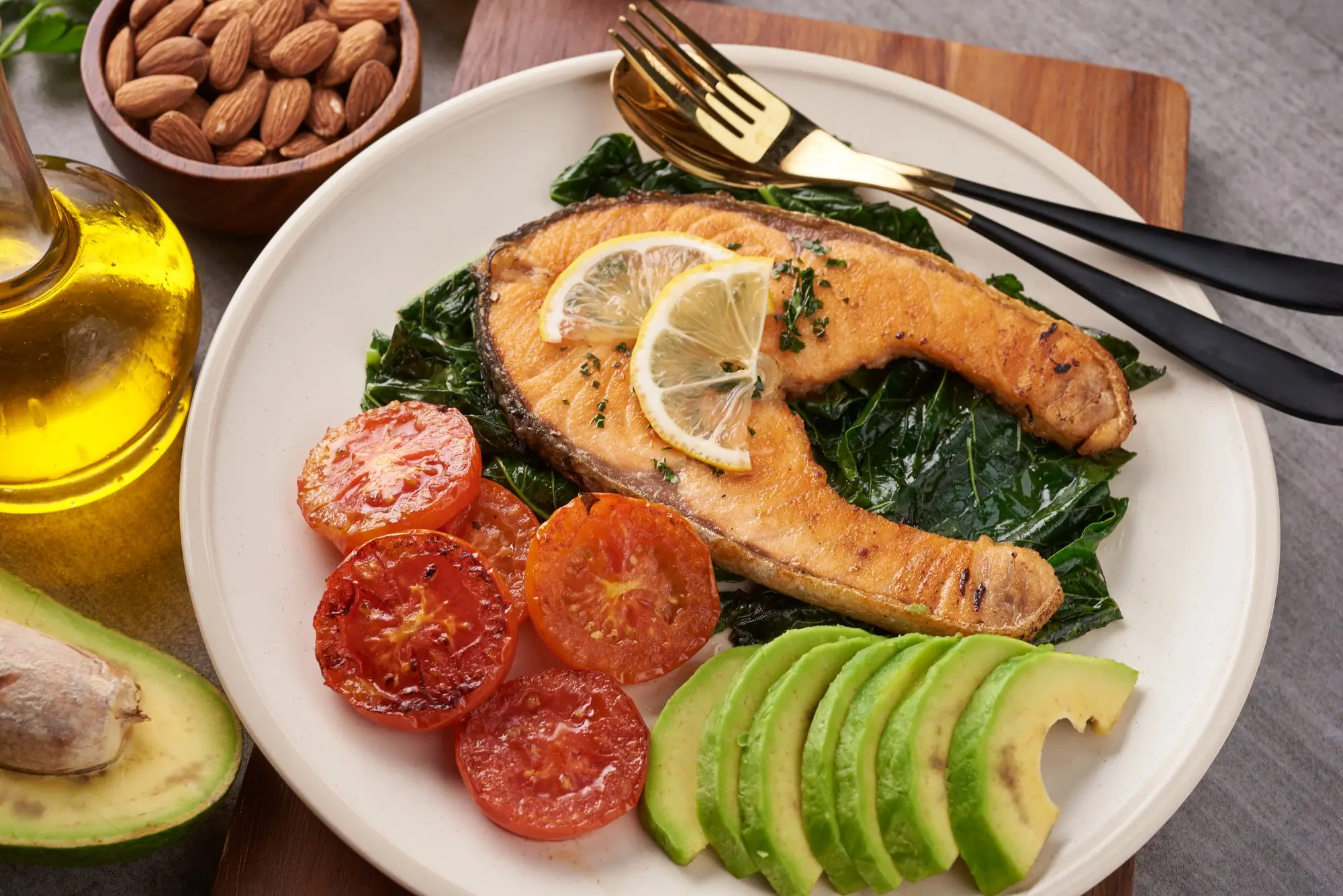
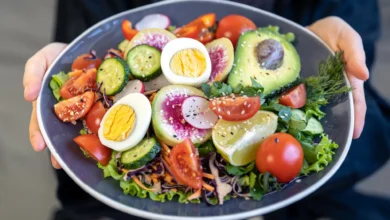 Low carbs diet
Low carbs diet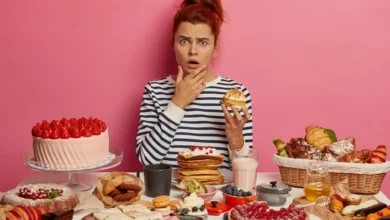 Emotional eating, what are its causes and how to get rid of it
Emotional eating, what are its causes and how to get rid of it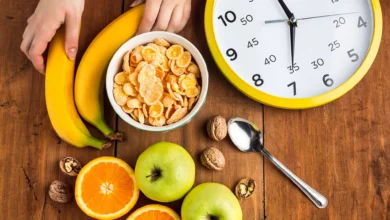 Intermittent fasting
Intermittent fasting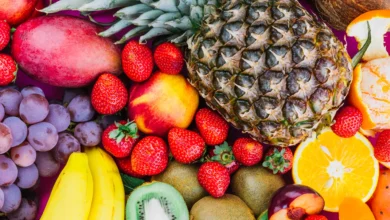 Does fruits raise blood sugar?
Does fruits raise blood sugar?